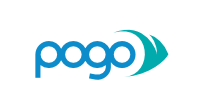The Gulf of Guinea (GoG) is an important global resource. Ranked among the most productive coastal and offshore waters in the world, the Guinea Current Large Marine Ecosystem is rich in fishery resources, petroleum and is also an important global region of marine biological diversity. The large human populations of about 40% of the region’s 280 million heavily depend on the lagoons, estuaries, creeks and inshore waters surrounding them.
There is still a paucity of information with respect to the linkage between physical and biogeochemical processes in this under-sampled and poorly understood region. Very little information presently exists for subsurface waters from depths of 1000m and beyond for essential ocean variables (EOVs) such as temperature, salinity, dissolved oxygen, chlorophyll, nutrients, etc. More data on these EOVs are essential for better understanding of the dynamics of the ocean waters within this region and also key to sustainable management of the resources therein.
The project "Acquisition of Oceanographic Data for Susteinable Resources Management in the Gulf of Guinea" aims to contribute to the oceanographic information for the African region on the global ocean science map which is presently sparse. The project brings together marine scientists from five African countries within the Gulf of Guinea region (Nigeria, Benin, Togo, Ghana and Côte d'ivoire), in partnership with European institutes.





